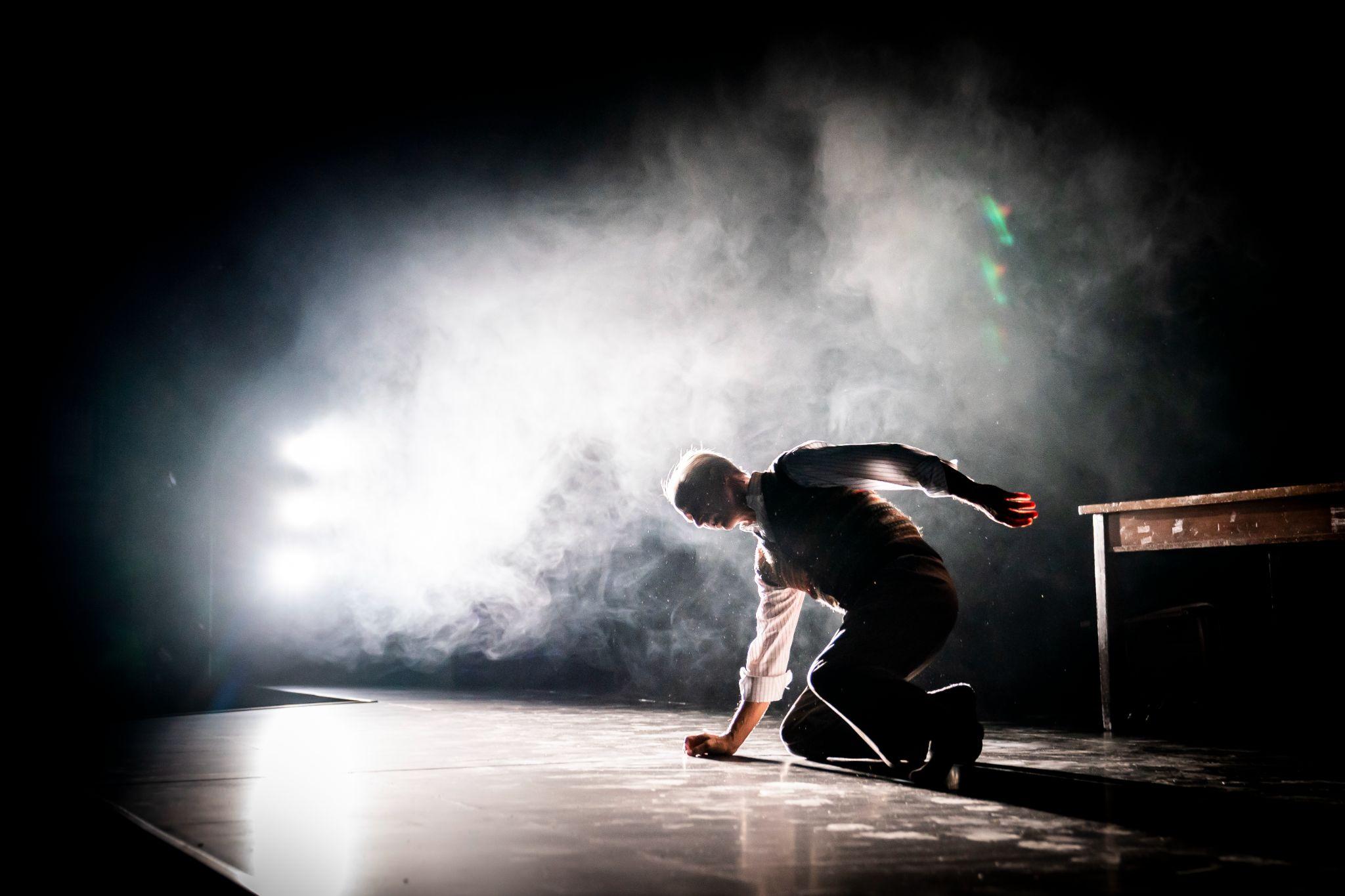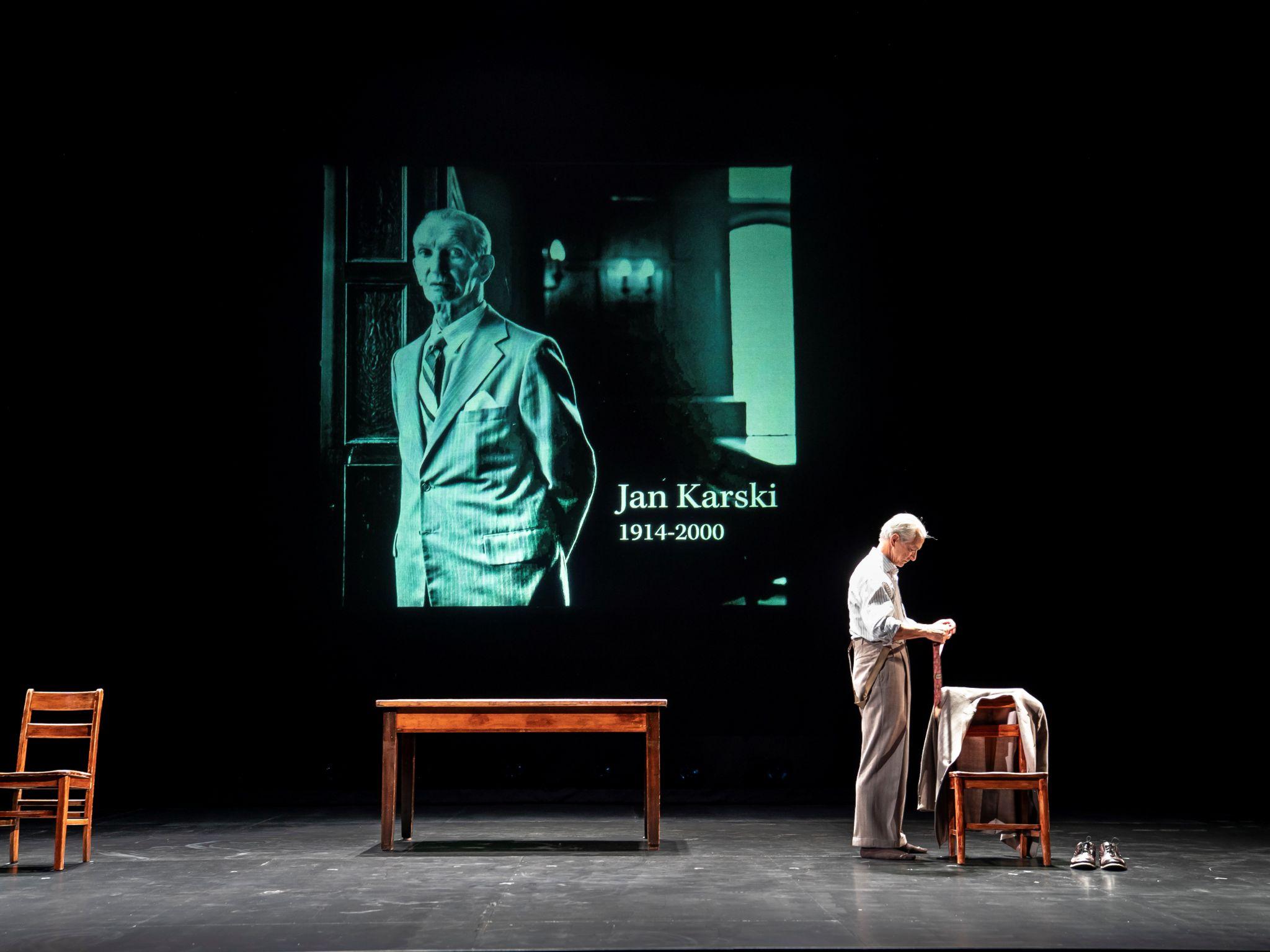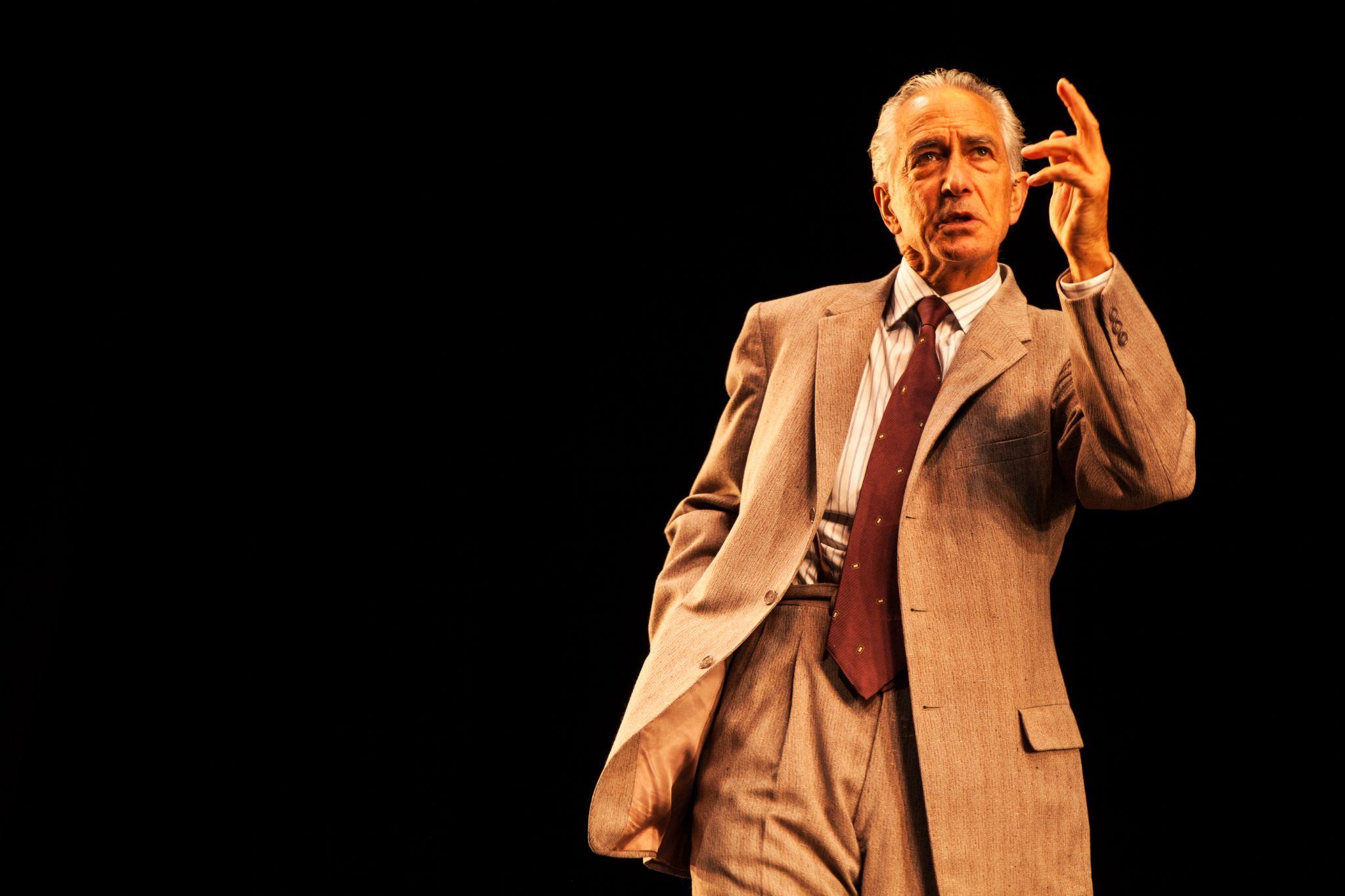The Story of Jan Karski is a Powerful Lesson in Humanity


For a solid 90 minutes at the Theatre for a New Audience, a sold-out theater relived the mesmerizing and painful life of Jan Karski brought to life by actor David Strathairn in “Remember This: The Lesson of Jan Karski.” No one moved, and not one word was exchanged, all focus was on the one actor on stage.
Strathairn captivated the audience’s imagination as he guided us through the life story of Karski, a young Polish Catholic diplomat who was recruited by the Polish government-in-exile at the beginning of World War II to report back from German-occupied Polish territory. After the war had ended, he was silent about his experience for 35 years until he spoke for the first time in Claude Lanzmann’s 1985 documentary “Shoah.” The over nine hour long documentary changed the history of cinema as it presented first-hand accounts with people who had lived through WWII as they visit German Holocaust sites in Poland.

The play opens with a black-and-white clip from Lanzmann’s interview with Karski, We see the actual man, a handsome older man dressed immaculately.”You have a historical responsibility to speak,” he says dutifully as he struggles to tell his story. Invoking this award-winning and iconic film centers the importance of witnessing and oral history. Karski’s is a horrendous story of the Jewish people but also a beautiful rendering of one man’s deep humanity. As the film background goes black Strathairn seamlessly picks up where Karski left off recounting his life. Carrying the same burden. Strathairn weaves other characters into the story, ones that Karski came in contact with. We see Karski leave his birthplace Łódź in his early 20s to study law and diplomacy. He realizes that: “human beings tend to behave according to what is convenient for them in life.” He moves into diplomacy traveling through Europe for training. Then WWII breaks out. Having heard of Karski’s photographic memory the Polish underground chose him to become their special messenger. He was to report what he saw happening in Poland to the Polish government-in-exile. First, he reported on the Polish people and sharing news about their homes, businesses, and institutions, and then about the terror the Nazis inflicted on the Jewish people.
The Blitz tore Poland apart. It was described powerfully on stage with white smoke and the sounds of artillery as the actor rolled on the floor trying to hide under the wooden table as the two wooden chairs found themselves misplaced. With such simplicity, the director, Derek Goldman (who co-wrote the play with Clark Young) achieved a profound emotional impact. “Poland lost the war to the Nazis in 20 minutes,” Karski announces. The darkness that he lived and re-lived on a daily basis while the war was going on—being beaten and tortured—did not change his courageous dedication and commitment to reporting the truth.
His deep disappointment, however, stemmed from the fact that the Polish government did not spread his reports to the public and did not take action. “Governments don’t have souls, people have souls,” he states with deep sorrow. The play slows to a simmer as Karski delivers his most important finding to his supervisors. The alarming call about what he saw in the ghettos and the Auschwitz death camp. His internal human struggle exposed us to his pain, shared his agony and understood how unbelievable all these sceneries were to him. He speaks to himself trying to convince himself that it simply cannot be happening: “I know humanity, they can’t do that. Why are these people naked? Why is that mother naked as she is trying to feed her baby from a flat breast with no milk coming out? No feelings just look,” he tells himself as he passes through the horrors of the death camp. It is difficult to visualize and the mind cannot absorb these atrocities.
Karski seeks guidance from Szmul Mordko Zygielbojm, a Jewish leader and member of the National Council of the Polish government-in-exile. Karski wants his reports to reach the world leaders in hopes that they will stop the massacres of the Jewish people. Zygielbojm urges him again and again, “talk to them, tell them”
Zygielbojm commits suicide on May 11, 1943. So did Pola Nirenska Karski’s wife, the beautiful Polish Jewish dancer who he describes with infinite love. She was a dancer and escaped from Poland through Italy to London, but lost over seventy members of her family during the war. “The Holocaust was alive in her imagination. She threw herself from our balcony,” Karski says solemnly.

Following Zygielbojm’s advice, Karski finally secures a meeting with President Roosevelt; he tries to reason with him, “I see a lord of humanity seated behind the table.” He tells him in detail how millions of Jewish people are sent to the death camps and urges Roosevelt to stop it while there is still time, before the Nazis massacre them all. To Karski’s disbelief Roosevelt asks him about the horses in Poland; “but not even one question about the Jewish people.” And then politely the president excuses himself to prepare for his next meeting. After the war, Karski points out that the leaders pretended as if the thoroughly planned Jewish extermination by the Nazis was not known to them. Which we know from recounts such as Karski’s, and many others, not to be true.
As the curtain came down a standing ovation greeted the actor, Strathairn, for his breathtaking one-man performance. A talk followed with the actor, director, playwright, and psychologist specializing in trauma and dissociation. During the Q&A, Shulamith Bahat CEO of the Museum of the Jewish People in America who met Karski commented from the audience that during the years Karski was silent about the past he was active and vocal about the present. He was a passionate supporter of Israel and fought against anti-semitism and discrimination. Leaving the theater this feeling reverberated that we must together continue the fight against divisiveness, dishonesty, and of course antisemitism.
Remember This: The Lesson of Jan Kraski has closed but an illustrated book about the play is available. A version of this article was also published in Jewish Business News.
You Might Also Like
State of Becoming: Katya Grokhovsky in Conversation with Leeza Meksin at Ortega y Gasset Projects
What's Your Reaction?
Tsipi Ben-Haim is the founder of CITYarts, a non-profit public arts and education organization that engages youth with professional artists to create public art. l website l

